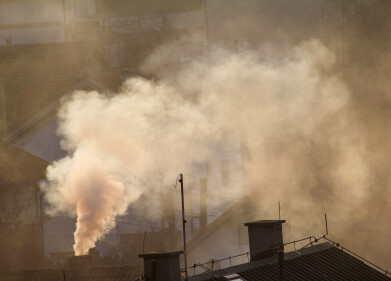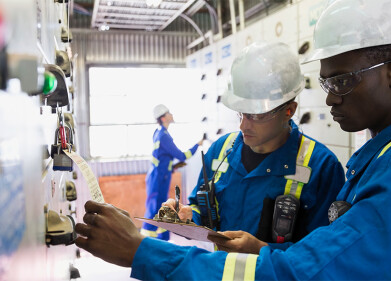-
 The investigation into the leaking pipes is still ongoing
The investigation into the leaking pipes is still ongoing
Safety
Kashagan gas leak caused by sulphide stress corrosion
Dec 10 2013
Less than a month after Kazakhstan's Kashagan oil field began pumping, it suffered a gas a leak. An investigation performed by North Caspian Operating Company (NCOC), the operator of Kashagan, has discovered that sulphide stress corrosion is the cause of the leaks, reports Tengrinews.
Parts of the pipeline were sent for analysis in Cambridge, UK, which showed that the corrosion was the main cause of the leak. However, NCOC told the news provider that the investigation is still underway.
Sulphide stress corrosion is caused when hard or short steel is subjected to continuous high concentrations of hydrogen sulphide alongside water. This stress causes hairline cracks in the metal, which can lead to leaks. The Kashagan oil field's product contains one of the highest concentrations of hydrogen sulphide in the world, meaning that this problem could be a continuous one.
In order to ensure that the entire system was functioning correctly before pumping restarts, NCOC told the news provider that the oil pipeline is also being tested, as are the offshore gas pipelines; despite the fact that neither has registered any leaks. Pipe junctions are also being tested in order to find the main cause of the problem, alongside the sulphide stress corrosion.
All pipelines at the Kashagan oil field are in the process of being emptied in order to undergo a thorough cleaning, according to the news provider. It is expected that the cleansing of the pipes should be completed within the first half of this month.
A NCOC representative told Tengrinews that diagnostics will commence once the pipelines have undergone the cleaning and that all the equipment is ready to go. A number of inspection devices will be run through the pipeline to gather data and result in an accurate analysis.
This diagnostic is designed to reveal the full extent of the damage done to the gas pipelines and any potential problems within the oil pipes. This will enable NCOC to repair the system and plan for any possible problems in the future. It is expected that the diagnostic will be completed toward the start of next year.
Digital Edition
PIN 25.5 Oct/Nov 2024
November 2024
Analytical Instrumentation - Picturing Viscosity – How Can a Viscometer or a Rheometer Benefit You? - Sustainable Grease Formulations: Evaluating Key Performance Parameters and Testing Method...
View all digital editions
Events
Nov 26 2024 Paris, France
Nov 26 2024 Amsterdam, Netherlands
Nov 27 2024 Istanbul, Turkey
Biogas Convention & Trade Fair 2024
Nov 27 2024 Hanover, Germany
Dec 03 2024 Dusseldorf, Germany


















